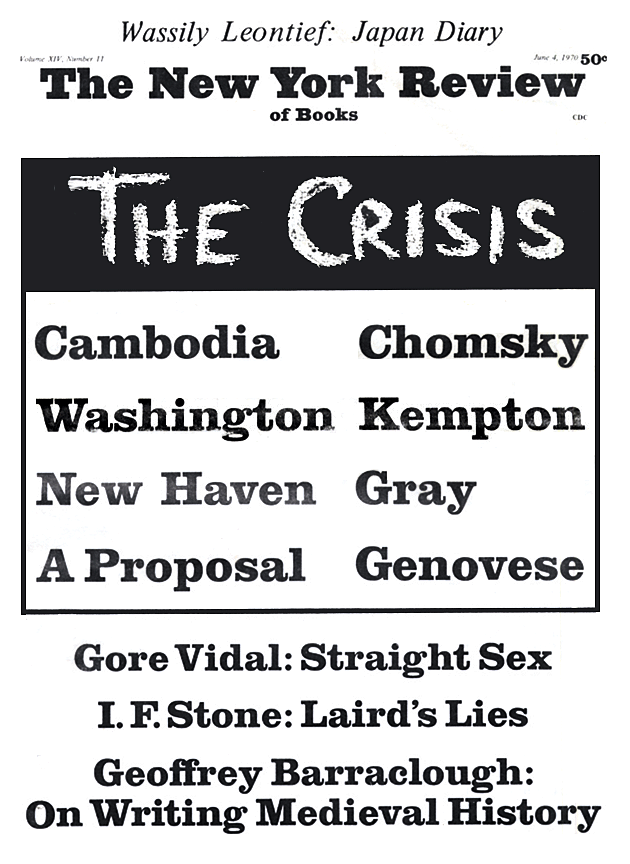To the Editors:
Members of the Columbia faculty have received many inquiries from the press and other sources about the role of our faculty in the present national crisis. In this connection we write on behalf of the Columbia Faculty Peace Action Committee. The chairmen are Sidney Morgenbesser, Seymour Melman, and F. W. Dupee.
During the two weeks since it was formed, more than one hundred members of the faculty from different schools and divisions of the university have joined our group. The resolution under which the group is organized expresses agreement with the objectives of the national university strike movement, namely, ending the war in Indochina and ending political repression at home and the complicity of universities in war research. In its present activities the committee seeks means to restore the constitutionally defined limits on the powers of the President and to stop the expansion of the defense-management complex, as exemplified in the deployment of the MIRV and ABM weapons systems.
Various members of our group are also associated with a number of programs and projects that are currently under way at Columbia. One of the more amibitious of these is the Academic and Professional Lobby for a Responsible Congress, already a nation-wide university faculty body which aims, among other things, to influence the coming Congressional elections. (Address of the Lobby: 3041 Broadway, NYC 10027.) There is also a student organization, recently formed, known as Action for Peace (311 Ferris Booth Hall, Columbia University, NYC 10027). This group works closely with members of the faculty to gain support in the community at large for the Hatfield-McGovern Amendment. (More than 100,000 signatures in favor of the amendment have already been collected by students of Action for Peace on the streets of the Greater New York area.) Those engaged in this joint undertaking have visited and will continue to visit members of the Congress in Washington to urge passage of the amendment.
Another related and already highly effective action involves a group called Parents for Peace which is at work organizing parents to support student peace activities and to cooperate with students in the furtherance of their larger political goals.
In addition, position papers on pertinent political and social subjects are in preparation by specialists and will be available for general use. Among the subjects dealt with in such papers are the participation of scientists in government work, and the problems connected with postwar economic conversion.
We invite faculties at other colleges and universities to communicate with us for purposes of information or association.
F. W. Dupee
Steven Marcus
Columbia Faculty Peace Action Committee
Box 304, Mudd Hall
Columbia University
New York, N.Y., 10027
This Issue
June 4, 1970


